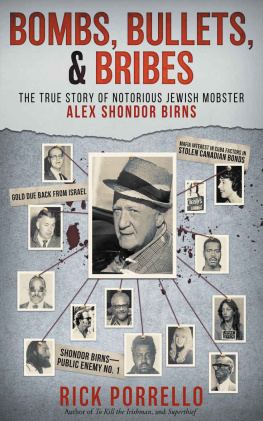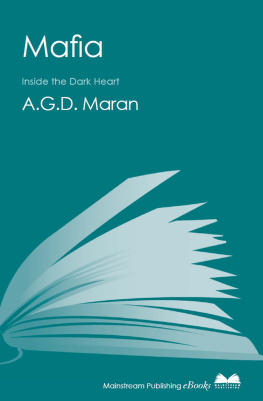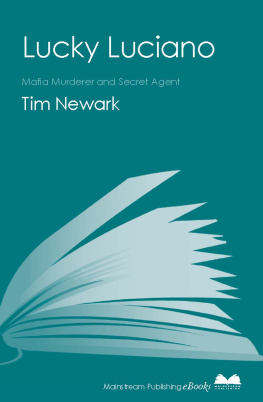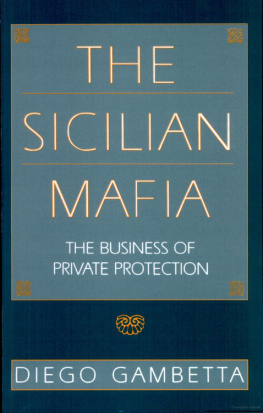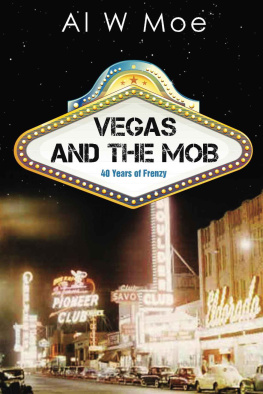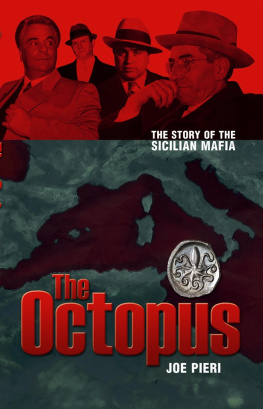Rick Porrello - The Rise and Fall of the Cleveland Mafia. Corn Sugar and Blood
Here you can read online Rick Porrello - The Rise and Fall of the Cleveland Mafia. Corn Sugar and Blood full text of the book (entire story) in english for free. Download pdf and epub, get meaning, cover and reviews about this ebook. year: 2011, publisher: National Book Network (NBN);Barricade Books, genre: Detective and thriller. Description of the work, (preface) as well as reviews are available. Best literature library LitArk.com created for fans of good reading and offers a wide selection of genres:
Romance novel
Science fiction
Adventure
Detective
Science
History
Home and family
Prose
Art
Politics
Computer
Non-fiction
Religion
Business
Children
Humor
Choose a favorite category and find really read worthwhile books. Enjoy immersion in the world of imagination, feel the emotions of the characters or learn something new for yourself, make an fascinating discovery.

- Book:The Rise and Fall of the Cleveland Mafia. Corn Sugar and Blood
- Author:
- Publisher:National Book Network (NBN);Barricade Books
- Genre:
- Year:2011
- Rating:4 / 5
- Favourites:Add to favourites
- Your mark:
- 80
- 1
- 2
- 3
- 4
- 5
The Rise and Fall of the Cleveland Mafia. Corn Sugar and Blood: summary, description and annotation
We offer to read an annotation, description, summary or preface (depends on what the author of the book "The Rise and Fall of the Cleveland Mafia. Corn Sugar and Blood" wrote himself). If you haven't found the necessary information about the book — write in the comments, we will try to find it.
The Rise and Fall of the Cleveland Mafia. Corn Sugar and Blood — read online for free the complete book (whole text) full work
Below is the text of the book, divided by pages. System saving the place of the last page read, allows you to conveniently read the book "The Rise and Fall of the Cleveland Mafia. Corn Sugar and Blood" online for free, without having to search again every time where you left off. Put a bookmark, and you can go to the page where you finished reading at any time.
Font size:
Interval:
Bookmark:
RICK PORRELLO is a veteran police investigator in the Cleveland area and has a degree in criminal justice. He juggles several other vocations, including writing and a successful music career. He is a jazz drummer and soloist, who spent three years traveling worldwide with the late Sammy Davis, Jr. Most recently he has performed with The Four Lads (whose popularity has endured since their heyday as recording artists in the 1960s), and the internationally acclaimed jazz whistler Ron McCroby.
Not least among Porrellos interests is Mafia history, on which he holds a unique perspective. His great-uncle was a Cleveland Mafia boss, and his grandfather was killed in an early mob war. His curiosity about his grandfathers murder prompted Porrello to begin a nine-year study of organized crime in Cleveland, which has culminated with publication of The Rise and Fall of the Cleveland Mafia.
He is married and lives in suburban Cleveland.
I WOULD LIKE to thank the following persons and organizations for their contributions to this project: Rick Balkin, Anita Benedetti, Tom Bird, Timothy R. Cannon, Louis C. Capasso, Robert J. Cermak, Betty J. Chan, Cleveland Police Department-Division of Homicide and Police Museum, Cleveland Public Library, Cleveland State University, Cuyahoga County Archives, Cuyahoga County Coroners Office, Euclid Public Library, Kathleen K. Fana, Edward P. Kovacic, Mayfield Regional Branch of the Cuyahoga County Library System, Doris ODonnell, John J. Porrello, Joseph J. Porrello, Raymond A. Porrello Sr., Lee Porrello, Raymond Villani, Gene Volk, Western Reserve Historical Society, and the many persons who wish to remain anonymous.
Special thanks to my editor Eileen Brand, and of course to my publishers Lyle and Carole Stuart, who brought to fruition nine years of work.
Lonardos
Senate
Testimony
What follows is an excerpt from the testimony ofAngelo Lonardo, former acting boss of the Cleveland La Cosa Nostra, before the Permanent Subcommittee on Investigations of the Senate Committee on Government Affairs April, 4th, 1988.
Senator Roth: Thank you, Mr. Chairman.
These hearings I believe are exposing the changing face of organized crime. Frankly, that changing face gives me cause for concern. On Monday, we were told that we are facing a new generation of the LCN which differs significantly from its predecessors. They lack respect for tradition and for the family, they have succumbed to the influence of drugs, both as traffickers and as users. As a result, they have become more greedy, selfish, more violent. Many have chosen to forsake omerta, the traditional vow of silence and tum in other family members to save their own skins. Today, Angelo Lonardo, the son of an LCN boss and a former acting boss himself, will confirm from the inside this new face of the LCN. On Monday, Tommaso Buscetta, a former Sicilian LCN member, told us that these changes are not limited to the United States. Primarily because of drugs, he said, in Italy as well, there are no more men of honor. While it may be true that the LCN has changed, what has not changed is the fact that it is still here, terrorizing citizens, draining our economy, and in many cases taking over legitimate businesses. As long as that is true, our efforts to eliminate organized crime must continue unchanged.
Thank you, Mr. Chairman.
Senator Nunn: Thank you, Senator Roth. Mr. Lonardo, why dont you proceed?
Mr. Lonardo: My name is Angelo Lonardo. I am 77 years old, and I am a member of the La Cosa Nostra. I am the former underboss of the Cleveland organized crime family. I became a member of La Cosa Nostra in the late 1940s, but have been associated with the organization since the late 1920s. When I was madeor became a member of La Cosa NostraI went through an initiation ceremony. I later learned that to be proposed for membership in La Cosa Nostra, you would have to have killed someone and stood up to the pressure of police scrutiny. Today, you do not have to kill to be a member, but just prove yourself worthy by keeping your mouth shut or by being a stand-up guy. However, if you are called upon to kill someone, you have to be prepared to do it. In my case, my father was murdered by Salvatore Todaro in 1927. In revenge, my cousin, Dominic Sospirato, and I killed Todaro. This is one of the reasons that I was proposed for membership in La Cosa Nostra.
In the 1930s, my cousin, John Demarco, and I murdered Dr. Romano, the former boss of Cleveland, because Romano had a role in the death of my father, and we believed that he killed our cousin on the operating table. At the time, I was not a member of the LCN, but Demarco was. As a result of the Romano murder, Demarco was condemned to death by the Commission for killing a boss without okaying it with the Commission. I was excused for my part in the murder, since I was not an LCN member and did not know the rules. Later, I attended a meeting with Al Polizzi, the boss of Cleveland, in Miami, Florida. It turned out that this was a Commission meeting and that Polizzi was defending Demarcos murder of Romano. I did not sit in on the meeting, but afterwards Polizzi told me that he had straightened out Demarcos problem with the Commission.
During the 30s, the Commission put a freeze on the making of new members. The Commission put the freeze on since families, especially in New York, were not making the right kind of people. Some individuals were even buying their way into the LCN. I have heard that one businessman paid $50,000 to join the LCN. Because of the decree, I was not made into the Cleveland family until the 1940s.
John Scalish became boss of the Cleveland family around 1949. He took over for Al Polizzi, who tired of Cleveland and retired in Florida. In 1949, the Cleveland family had between 50 and 60 members. Scalish did not make any new members, so the strength of the Cleveland family diminished as its members aged or died. Scalish just did not want to make any new members. Even though a small organization, the Cleveland family became involved in Las Vegas casinos through their association with the Jewish Boys, Maurice Kleinman, Moe Dalitz, Sammy Tucker, Tommy McGinney, who is dead, and Lou Rothkopf, also dead. In the late 1940s, Wilbur Clark began building the Desert Inn casino in Las Vegas, Nevada. Clark was in need of additional capital and eventually went into a partnership with the Jewish Boys in order to obtain the necessary funding to complete the construction of the casino. Kleinman, Dalitz, Tucker, McGinney, and Rothkopf were gamblers who owned the Beverly Hills Supper Club, a casino-type gambling operation in Covington, Kentucky.
A few years after the Desert Inn was licensed and operating, the Jewish Boys gave Al Polizzi, John King, and Frank Milano a piece of the Desert Inn in exchange for the Cleveland familys protection. During the 1970s, the Cleveland family received money from two sources. The first source was the skim money from the Las Vegas casinos, and the second was our piece of the Pittsburgh familys Youngstown, Ohio, rackets. Our family received about $40,000 a month from Vegas and 25 percent of the Youngstown rackets, which would average about $5,000 per month. I did not learn about this arrangement until I became the underboss in 1976. The skim of the Las Vegas casinos started in the early 1970s. Starting in 1974, I began receiving about $1,000 to $1,500 a month from the family, through Maishe Rockman. I did not know where the money was coming from, but I suspected that it was from the Las Vegas casinos. I learned this from various conversations that I had with Rockman.
In 1976, John Scalish died, and at a meeting at Scalishs house, Rockman told me and Jack Licavoli, who is also known as Jack White, that Scalishs wishes were that Licavoli become boss of our family. At first, Licavoli did not want the job, but I told him to take it, as those were Scalishs wishes. Later, Licavoli made Leo Moceri his under-boss and Tony DelSanter his consigliere. One day, I asked Licavoli ifhe had gone to New York and introduced himself to Tony Salerno as boss of the family. Licavoli said no, and that he did not know that he had to do this. I told him that it was only right, out of respect, since the Genovese family represents us, Cleveland, on the Commission. After this conversation, Licavoli went to New York to introduce himself as boss of our family. Later in 1976, Leo Moceri was murdered. Moceri had been murdered on the orders of John Nardi. I became underboss after Moceris death. After Licavoli named me underboss, he and I traveled to New York to introduce me to Salerno as underboss of the Cleveland family. I had known Tony Salerno since the 1940s, and out of respect for him and the Genovese family, it was proper to let them know of my appointment.
Font size:
Interval:
Bookmark:
Similar books «The Rise and Fall of the Cleveland Mafia. Corn Sugar and Blood»
Look at similar books to The Rise and Fall of the Cleveland Mafia. Corn Sugar and Blood. We have selected literature similar in name and meaning in the hope of providing readers with more options to find new, interesting, not yet read works.
Discussion, reviews of the book The Rise and Fall of the Cleveland Mafia. Corn Sugar and Blood and just readers' own opinions. Leave your comments, write what you think about the work, its meaning or the main characters. Specify what exactly you liked and what you didn't like, and why you think so.

